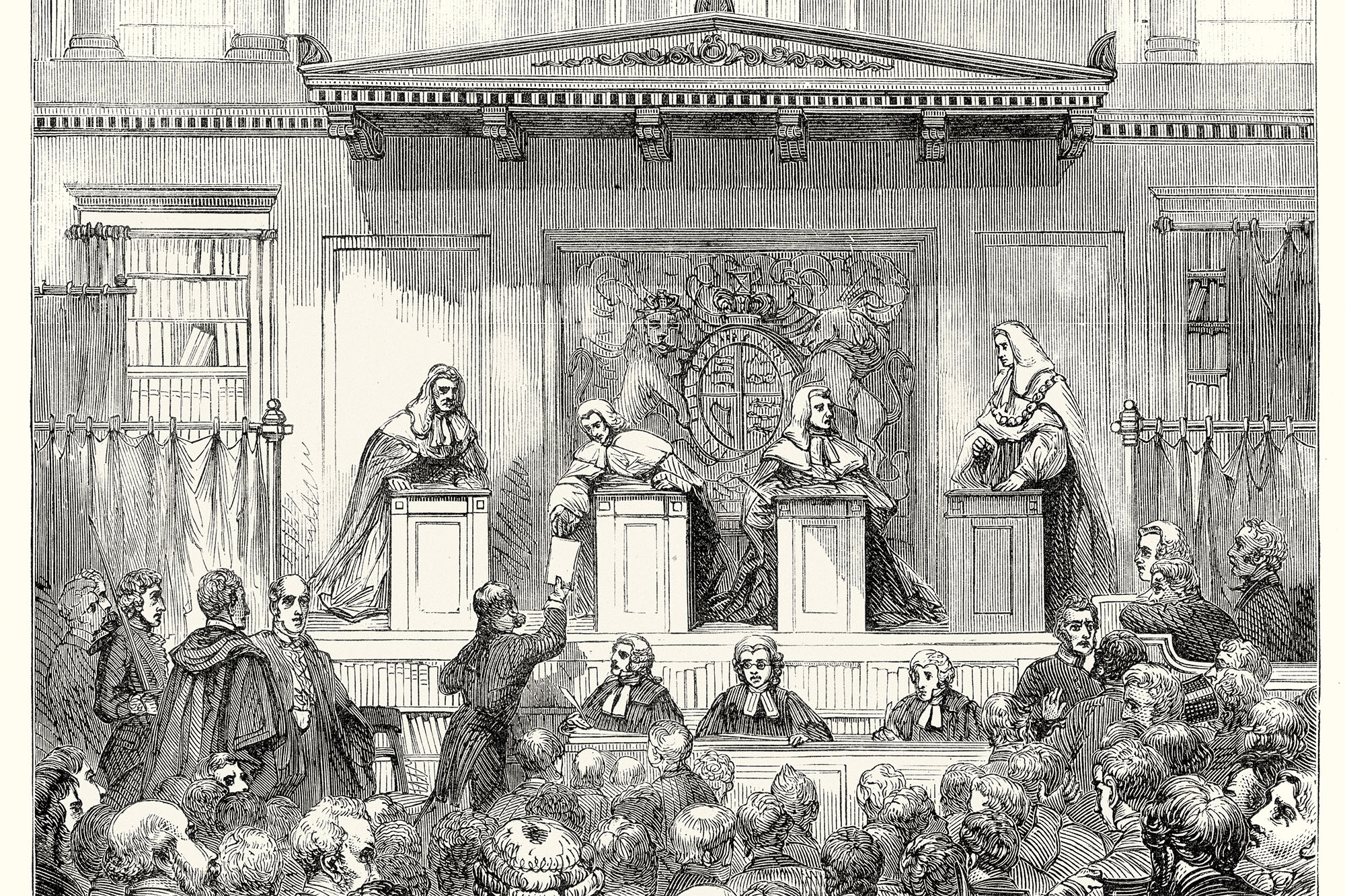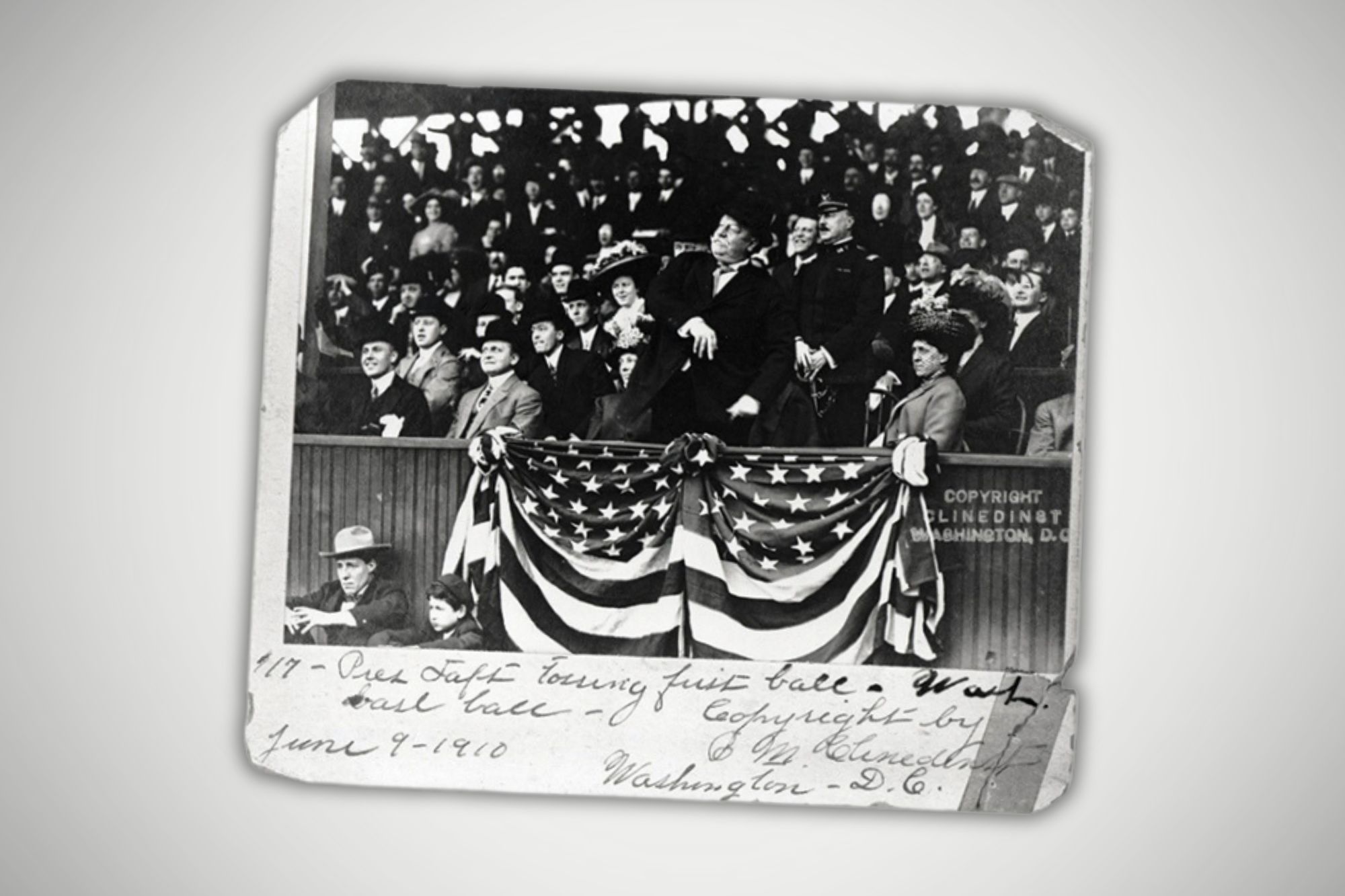Vol. 107 No. 2 (2023) - Generative AI in the Courts

Click here to download this edition as a PDF.

“Our Response Must Be Faster and Louder”
by Paul W. Grimm
Vol. 107 No. 2 (2023) | Generative AI in the CourtsThose who become judges don the robe expecting to work hard. They accept that the job comes with heavy caseloads, endless filings to read, and difficult decisions that must be made […]

Common Themes Emerge in 2023 ‘State of the State Judiciary’ Addresses
by Alyssa Nekritz and William Raftery
Vol. 107 No. 2 (2023) | Generative AI in the CourtsIn 48 states, the chief justice of the state supreme court is the “administrative head” of or holds “administrative power” over the state’s judicial branch.1 As such, many chiefs deliver annual “state of the judiciary” addresses, similar to speeches delivered by governors. […]

Minimize prepositional phrases. Question every of. (Part 2, PDF)
by Joseph Kimble
Vol. 107 No. 2 (2023) | Generative AI in the CourtsIn the previous column, I said that unnecessary prepositional phrases are perhaps the single biggest cause of sentence-level verbosity in legal writing […]

Judicial Honors Vol. 107 No. 2
by Oria Wilson-Iguade
Vol. 107 No. 2 (2023) | Generative AI in the CourtsJudge Nitza Quiñones Alejandro of the U.S. District Court for the Eastern District of Pennsylvania received the 2023 La Justicia Award from the Hispanic Bar Association of Pennsylvania, an organization she helped […]

New Chair and Members Named to Judicature Editorial Advisory Board
by Judicature Staff
Vol. 107 No. 2 (2023) | Generative AI in the CourtsThe Bolch Judicial Institute of Duke Law, publisher of Judicature, welcomed several new members and a new chair for its editorial advisory board. Judge Robin L. Rosenberg (Duke JD/MA’89) of the U.S. District […]

In Daniel’s Name
by Esther Salas and Robin L. Rosenberg
Vol. 107 No. 2 (2023) | Generative AI in the CourtsDaniel Mark Anderl gave his life to protect his parents. Now his parents are making sure his heroic act also protects other judges and their families. In July 2020, an […]

Should the Federal Rules of Civil Procedure Be Amended to Address Cross-Border Discovery?
by Michael M. Baylson and Steven S. Gensler
Vol. 107 No. 2 (2023) | Generative AI in the CourtsIn today’s world of borderless commerce, digital documents, and cloud storage, information relevant to U.S. litigation frequently is located outside of the United States. When discovery in a U.S. case […]

Inheritance of Hope
by Wallace B. Jefferson
Vol. 107 No. 2 (2023) | Generative AI in the CourtsThirty-three years after Martin Luther King’s “I Have a Dream” speech at the Lincoln Memorial, I visited Washington, D.C., for the first time. It was Tuesday, Nov. 5, 1996 — a presidential Election Day. […]

En Banc or In Bank? Take a Seat . . .
by Matt Liles* and Anthony B. Sanders†
Vol. 107 No. 2 (2023) | Generative AI in the CourtsWhy do judges and lawyers use the phrase “en banc”? Why not just say “the whole court” instead of getting all Continental? If the King’s English was good enough for […]

Judging Firearms Evidence and the Rule 702 Amendments
by Brandon Garrett, Nicholas Scurich, Eric Tucker and Hannah Bloom
Vol. 107 No. 2 (2023) | Generative AI in the CourtsForensic firearms identification involves linking evidence collected from crime scenes — namely, fired cartridge casings and bullets — to a particular firearm. Two assumptions underlie this identification process: First, firearms […]

What Can Be Done About Backlogs?
by Merritt McAlister, Adalberto Jordán and Kimberly J. Mueller
Vol. 107 No. 2 (2023) | Generative AI in the CourtsNo new judgeships have been authorized for the federal courts of appeals in more than 40 years, resulting in a system that is burdened by large caseloads: By 2021, filings […]

Is Disclosure and Certification of the Use of Generative AI Really Necessary?
by Paul W. Grimm, Maura R. Grossman and Daniel G. Brown*
Vol. 107 No. 2 (2023) | Generative AI in the CourtsThe news abounds with articles on the promises — and perils — of generative AI (GenAI) […]

The Courthouse Ethics and Transparency Act: New Obligations for Federal Judges
by Albert Diaz and Steven J. Alagna
Vol. 107 No. 2 (2023) | Generative AI in the CourtsThe debate over an ethics code for Supreme Court justices has made headlines recently. But the justices — along with the rest of the federal judiciary — have long been […]

Originalism Is Dead. Long Live Originalism.
by William H. Pryor and Conor Casey
Vol. 107 No. 2 (2023) | Generative AI in the CourtsCan common good constitutionalism replace originalism? Has originalism run its course? Yes, says Harvard Law Professor Adrian Vermeule in Common Good Constitutionalism (Polity Press, 2022), which advocates for the book’s titular theory […]

Neutrality Can Be Maddening to the Public. And to Judges, Too.
by Curtis E.A. Karnow
Vol. 107 No. 2 (2023) | Generative AI in the CourtsThose drawn to careers in law often want to save the world. When we decided on law school, we hoped to wield the armor and lance of the law to ensure civil rights, make people whole, and do justice. Some of us became judges, many accepting a reduction in salary to do public service. […]

Judge Dorothy Wright Nelson’s Prescient, Bold Vision of Justice
by Johnnie Blakeney Rawlinson
Vol. 107 No. 2 (2023) | Generative AI in the CourtsI began reading this book because of the great respect, affection, and admiration I have for my esteemed colleague, the Honorable Dorothy Nelson, senior circuit judge, Ninth Circuit Court of Appeals. […]

Not Just Umpires — Justices Are Fans, Too.
by Jennifer M. Lowe
Vol. 107 No. 2 (2023) | Generative AI in the CourtsThe Supreme Court’s jurisprudence on baseball began in 1922 with a unanimous ruling in an anti-trust case, Federal Baseball Club v. National League, that holds to this day. But the Court’s relationship with baseball isn’t just through its cases. The men and women who have served on the Court include many committed baseball fans. […]

In This Edition (Table of Contents Vol 107 No 2)
by Judicature Staff
Vol. 107 No. 2 (2023) | Generative AI in the CourtsFeatures In Daniel’s Name ESTHER SALAS & ROBIN L. ROSENBERG Should the Federal Rules of Civil Procedure Be Amended to Address Cross-Border Discovery? MICHAEL M. BAYLSON & STEVEN S. GENSLER […]

